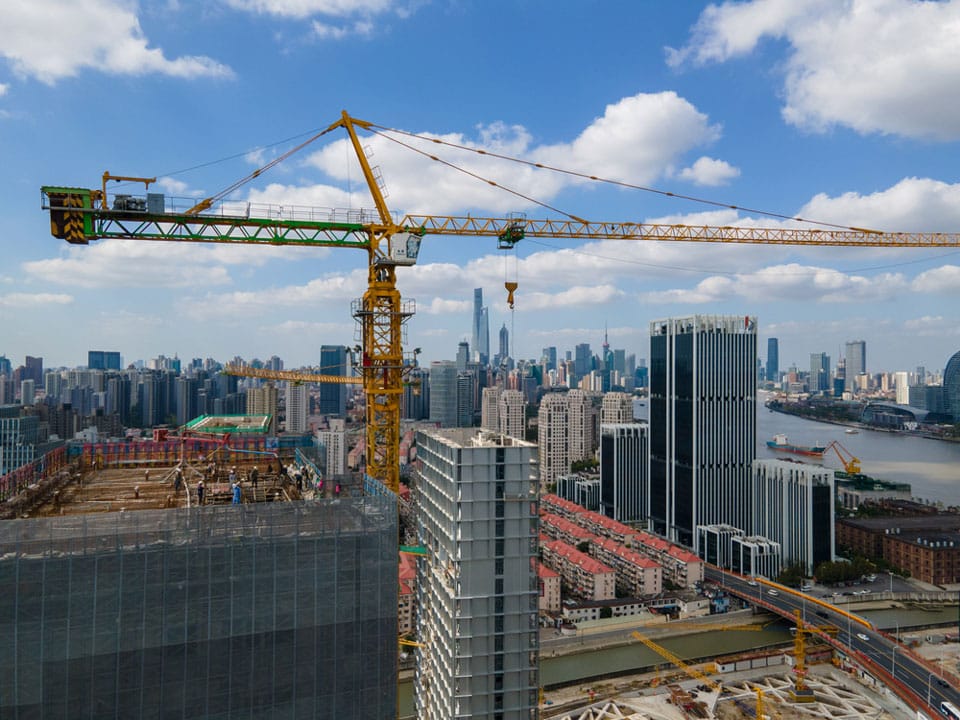Unpacking the Predicament of China’s Real Estate Sector

Over the course of several years, I have consistently stressed a crucial point: China’s real estate sector is fraught with inherent risks, a point that is still being underestimated by many.
The real estate industry carries a significant and intrinsic level of risk. One pivotal reason behind the high-risk nature of the real estate industry is what I refer to as the “Chan Cycle Model”, characterized by irrational price surges. To yield substantial profits in real estate, prices must continually rise. In the past, investment options were limited, and purchasing property, which offered both housing and appreciating value, seemed like the most lucrative choice. Consequently, rising prices inevitably led to higher government land auction prices, sparking fierce competition among buyers. Profits earned from the previous round of property sales were often absorbed by these soaring land prices, necessitating loans. These loans had to be repaid, driving the need for even higher property prices. As land costs increased, so did construction expenses, demanding even higher prices and augmented capital investment. This cyclic pattern persisted, ultimately evolving into a self-perpetuating model, which constitutes the reality of China’s real estate and land finance.
Within this cyclical model, determining when to make a decisive exit during profitable times is key, as it becomes challenging to disengage once one delves into this sector. The remaining funds after this decision signify the earnings reaped from it. Under such circumstances, land-based finance is imperative, and a land-based economy is inevitable, hence there is the accumulation of debt and financial risk to astonishing levels. These are all inherent in the structural dynamics of the real estate sector.
Pricing dynamics, particularly the formation of capital, stand as the paramount risk factor within this cycle. When land prices surge, property prices must inevitably increase. This trend extends to all related aspects. There exists no viable alternative, as failing to adjust prices upward would precipitate a collapse. Throughout this process, capital formation experiences a surge. There are no other sectors or industries that can keep pace with such price increases. Hence, the real estate industry will have no alternative industry to replace it.
From a policy perspective, in China, everything relies on land and real estate. This is the simplest economic development approach because land is a resource held in the hands of government authorities, unlike other resources. Alternative approaches, such as manufacturing, are only feasible in a small part of southern China where officials are hardworking and capable to some extent. In other regions, expecting officials to attract investment, seek assistance, and truly provide services is simply not viable.
An inevitable outcome of this situation is impending collapse. With the continuous surge in prices, two significant repercussions become evident. The first is that it is imperative to maintain a market economy, as prices require this framework to function effectively. However, this shift would result in the economic aspect overshadowing the political one. The second is that as prices continue their irrational ascent, the fragility of the financial system steadily intensifies. This phenomenon can be likened to a dam teetering on the edge of rupture due to the infiltration of ant holes. The current reality is that real estate has permeated both urban and rural areas, creating a landscape riddled with these ant-holes, and the dam appears on the verge of collapsing.
A forced withdrawal is feasible, albeit with substantial losses and repercussions. This stems from the fact that land-based finance and the land-based economy have become entwined with capital dependencies. The question arises: What could serve as a viable substitute for generating profit? Will it be manufacturing or other industrial sectors? Finding an alternative to this would require the concerted efforts of substantial personnel and resourceful policy administrators, as it poses a challenge that transcends mere rhetoric and demands tangible action.
Finally, the actual outcome is that China has achieved super-urbanization, rapidly concentrating a substantial rural population into cities, without considering the consequences. The urban landscape and infrastructure here are cutting-edge, including high-speed trains, airports, subways, electricity supply, and highways. However, government departments have become deficit-ridden entities. Each local government is a heavy debtor, with towering levels of debt. In reality, within government circles, this consequence has been known to every administration. When the debts were initially incurred, there was never a serious intent to repay them. Borrowing constitutes capital formation, while repaying entails massive constriction.
It appears that China’s governmental operations have become increasingly reliant on the continuous escalation of property and land values over the past few decades. The nation’s prosperity hinges upon the accumulation of capital, effectively manifesting a form of absolute capitalism. Remarkably, China’s dependency on capital has, to a significant extent, exceeded that of many conventional capitalist nations. Nevertheless, a complex dilemma arises when considering the reliance on capitalists to establish a “wealth equality” communist society, creating a profound paradox. Consequently, China confronts an immense and seemingly insurmountable social contradiction.
Have you read?
Report: These Are The Most Eaten Foods in the World, 2023.
Most expensive cars in the world, 2023.
These Are the Richest Cities in the World, 2023.
Richest Professional Football Clubs In The World, 2023.
25 of the world’s oldest billionaires in 2023, ranked.
Add CEOWORLD magazine to your Google News feed.
Follow CEOWORLD magazine headlines on: Google News, LinkedIn, Twitter, and Facebook.
This report/news/ranking/statistics has been prepared only for general guidance on matters of interest and does not constitute professional advice. You should not act upon the information contained in this publication without obtaining specific professional advice. No representation or warranty (express or implied) is given as to the accuracy or completeness of the information contained in this publication, and, to the extent permitted by law, CEOWORLD magazine does not accept or assume any liability, responsibility or duty of care for any consequences of you or anyone else acting, or refraining to act, in reliance on the information contained in this publication or for any decision based on it.
Copyright 2024 The CEOWORLD magazine. All rights reserved. This material (and any extract from it) must not be copied, redistributed or placed on any website, without CEOWORLD magazine' prior written consent. For media queries, please contact: info@ceoworld.biz
SUBSCRIBE NEWSLETTER








